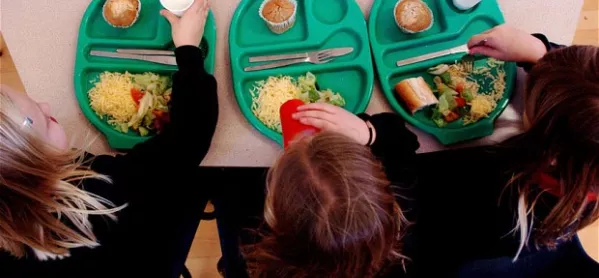In the Autumn of 2013, then deputy prime minister Nick Clegg announced that the coalition government would be extending free school meals to all pupils in key stage 1, regardless of household income. This bold policy was met with the full spectrum of views, ranging from joy to despair and everything in between. Since its introduction, there has been no official evaluation from the government into how the policy has been implemented, or any impact it may be having in schools or in homes. Today’s report from the Education Policy Institute (EPI) aims to do just that.
As those on the ground in schools delivering meals every day - Lead Association for Catering in Education (LACA) members - will tell you, one upshot of the policy is that hundreds of thousands of extra children are now enjoying a hot and healthy meal at lunch during term time. As the representative body of the school food industry, we felt it important to commission the first independent assessment of Universal Infant Free School Meals (UIFSM), to understand beyond our own first-hand experiences how the policy has been received.
The report - which included in-depth fieldwork and a survey of teachers, parents and school leaders - found that UIFSM has achieved a rapid take-up of school meals across England in infant years. In the January school census, this stood at 86.1 per cent. It is important to note that within these figures it is children in the lowest quartile of household income who have seen a significant increase in uptake - increasing from 34 per cent to 84 per cent in a given school week - which is a substantial achievement. Notably, the report also found that it is often those schools with “outstanding” Ofsted ratings that had the highest proportion of students taking up a free school meal.
Free school meals benefits
The take-up results are encouraging in terms of the nutritional impact of UIFSM. We know from previous academic research that only 1.6 per cent of packed lunches meet the nutritional standards set for school meals. Caterers across the country still tell horror stories of children attending school with nothing but chocolate bars, crisps and sugary drinks as their midday meal. To see the vast majority of the youngest school children benefiting from a nutritionally balanced meal at lunch is hugely encouraging and can only be a positive factor in the ongoing fight against childhood obesity. In addition, many parents noted that since the policy was introduced their children are more likely to eat fruit and vegetables, drink water and try new foods at mealtimes.
This policy has not only had a positive impact on school children but also on their parents, who have reported saving an average of 32 hours and £390 a year thanks to UIFSM. They told researchers they can now spend their extra time with their children, playing or doing homework.
More than half of the teachers surveyed felt that the policy had improved the health of their most disadvantaged pupils - and more than a third saw attainment and concentration levels improve as a direct result of the policy. It was also reassuring to see that many school leaders noted that UIFSM has led to an increased awareness of healthy eating choices among young children - and raising the profile of good nutrition throughout schools. Instilling good nutritional habits in children at a young age will likely be key to producing the next generation of healthy adults.
Making a difference
We know that there is more to be done to ensure all schools implement school meals in order to get the maximum benefit for children. LACA will continue to work tirelessly on behalf of the industry and our customers - school children - to achieve this.
UIFSM is not about banning packed lunches, nor is it a political bung to middle-class parents. This policy is making a real difference. It is about feeding young children a hot and healthy meal so they are able to make the most of the school day and get the best nutritional start in life - on that surely we can all agree.
Tim Blowers is the chair of the Lead Association for Catering in Education
Want to keep up with the latest education news and opinion? Follow Tes on Twitter and Instagram, and like Tes on Facebook
